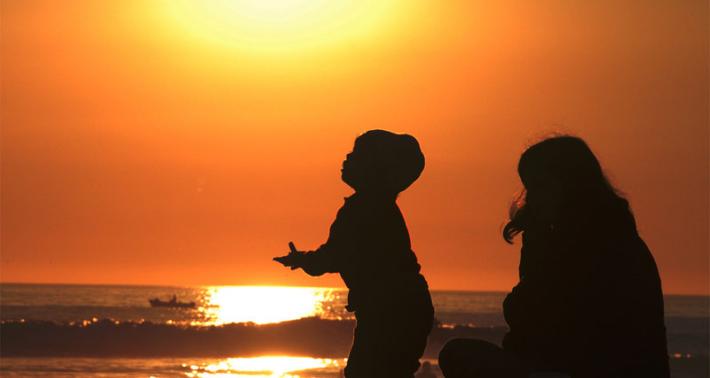When I was 11 years old my uncle came home on leave from the navy for Christmas and placed a gift for me under our Christmas tree. The box was about the size of a coffee table and around six inches deep. I looked at that box every day for two weeks and thought about it nearly 24/7. By the time Christmas Eve rolled around I was absolutely convinced that despite the shape of the box, the gift inside was the BB gun that I so dearly wanted. I hadn’t even held that BB gun in my hands, but in my mind I was already an expert marksman who could rival Marshall Matt Dillon. That’s the way it was until I unwrapped the box and found the table hockey game that was inside.
Now don’t get me wrong, Bobby Orr was my favorite athlete and I loved hockey; but the disappointment of not finding a BB gun in that box was heartbreaking and my uncle surely had to see it. And to be fair, that hockey game would become a favorite that was used well into my teenage years so it was a great gift. But the loss of the dream of that BB gun is a feeling familiar from many a childhood. The disappointment was only to be rivaled by the disappointment of knowing that I should feel grateful for any gift that I received.
There comes a time in our lives when we realize the reality of lost dreams, the heartbreak of opportunities lost, the pain of chances squandered. And I don’t mean in childish things like presents not received at Christmas, but in big things like relationships, career outcomes and the things central to fullness of life. It’s part of the process of growing up and living in the world as the world is I suppose. A world where our past successes and failures seem to share the responsibility of defining our present reality.
We are told to persevere (and don’t be too proud) – to count our successes and to dismiss and learn from our failures. But if we are truly honest, even as we write-off our failures as experience gained they seem to haunt us like ghosts. And all the while, our successes seem to settle into the past and fade away while strangely becoming hollow.
In the Christian tradition, we see Jesus meeting plenty of people who are defining themselves from their past successes and failures. Unhappy rich rulers and broken-hearted mourners both come to Jesus seeking advice and wholeness. And strangely, to both of them he offers the same advice, become like a child.
Now in one sense this advice is pretty simple. Rely on God the same way that a child relies on a good parent to guide their young and precious life. Trust the ways that God has set before you and don’t place so much trust in your own decision making and in exerting control over your situation (be it a good one or a bad one). “Look at the birds of the air; God takes care of them so how much more valuable are you to God?” Trust God and God’s guidance. You are loved by God. That is enough. Enough to sustain the day and define you in the same way that a parent loves their child and will do anything for them.
The second invitation to become child-like is more nuanced. Because a child lacks a substantive past from which to draw their identity, they define the present in reference to a future that is full of endless possibilities, positive outcomes and dreams yet to be discovered. Young children live their lives leaning into an unfolding future where all things are possible. Spend five minutes watching a three or four year old at play and you cannot help but see this in the way they see the world.
“What is impossible for people is possible for God,” we are told by Jesus. God’s desire is for us to return our outlook on life (and our very being) to this paradigm of possibility. God’s hope is that we have eyes like children and see a present that is defined not by our past success or failures but rather by an open future full of possibility and defined by God’s goodness.
A present informed by the future and not the past – where you and ‘that person’ can find forgiveness and reconciliation where it seems otherwise impossible.
A present informed by the future and not the past – where in spite of very real hatred and violence in the world there is space for peace on earth.
A present informed by the future and not the past – where child-like wonder and hope has the last world.




